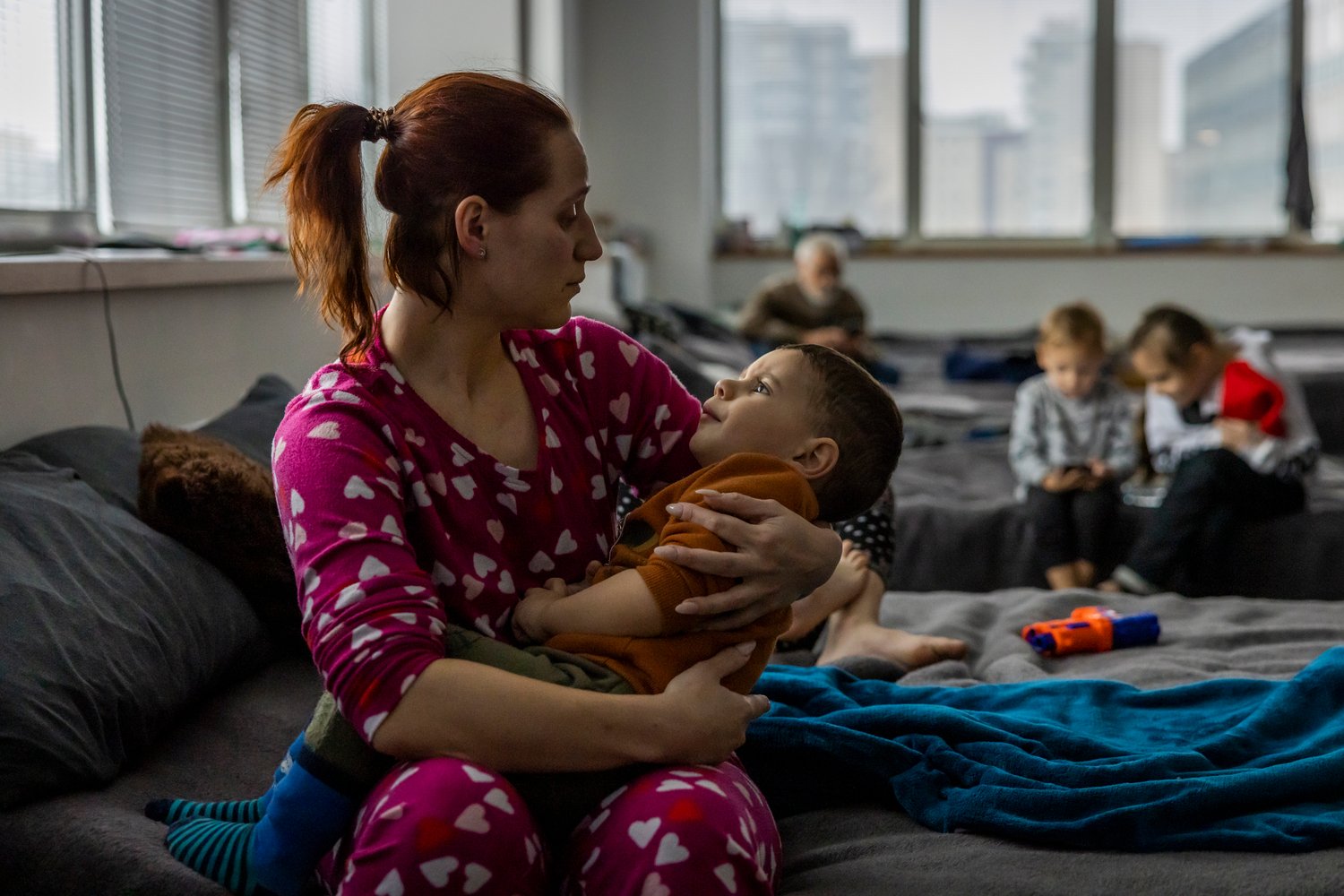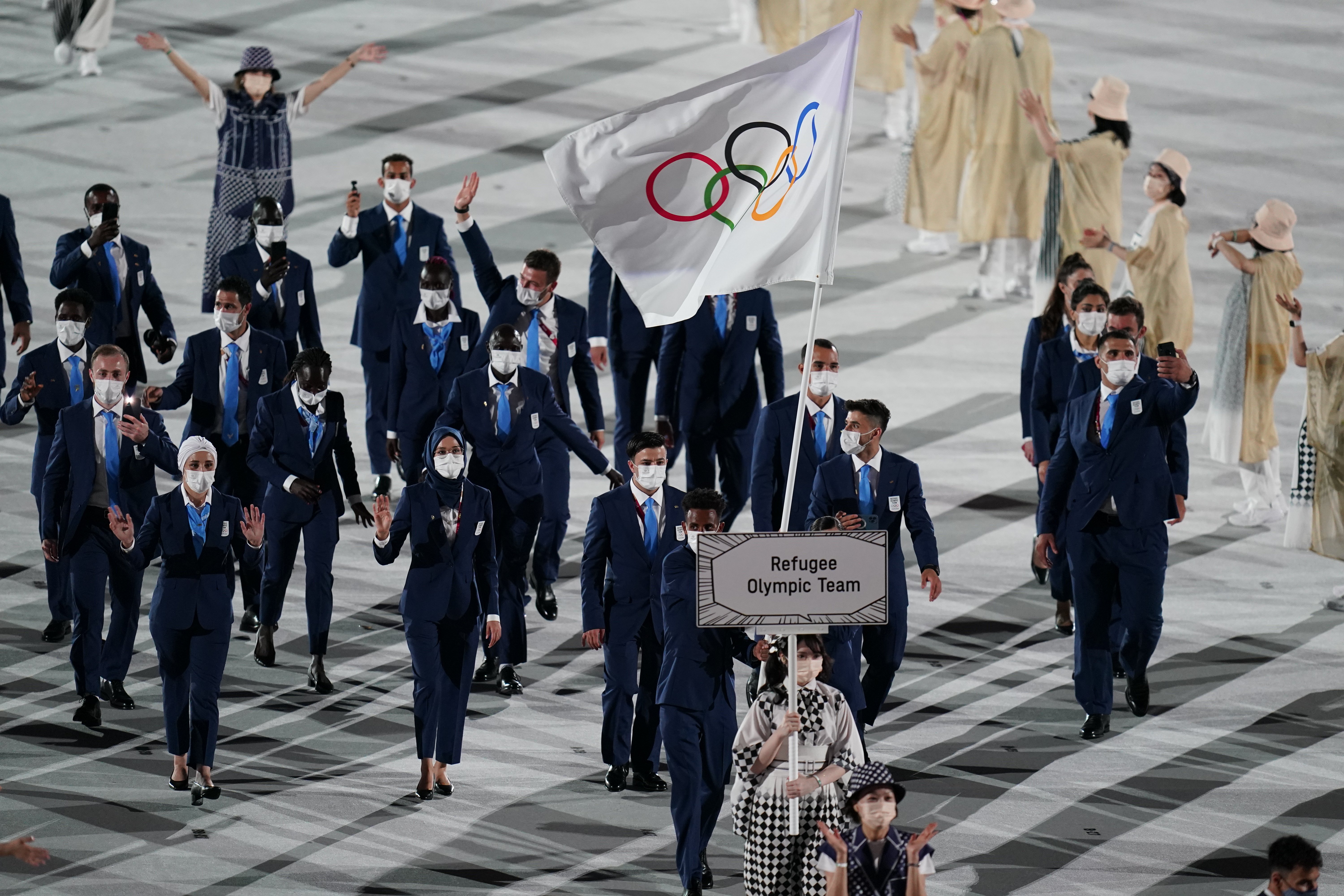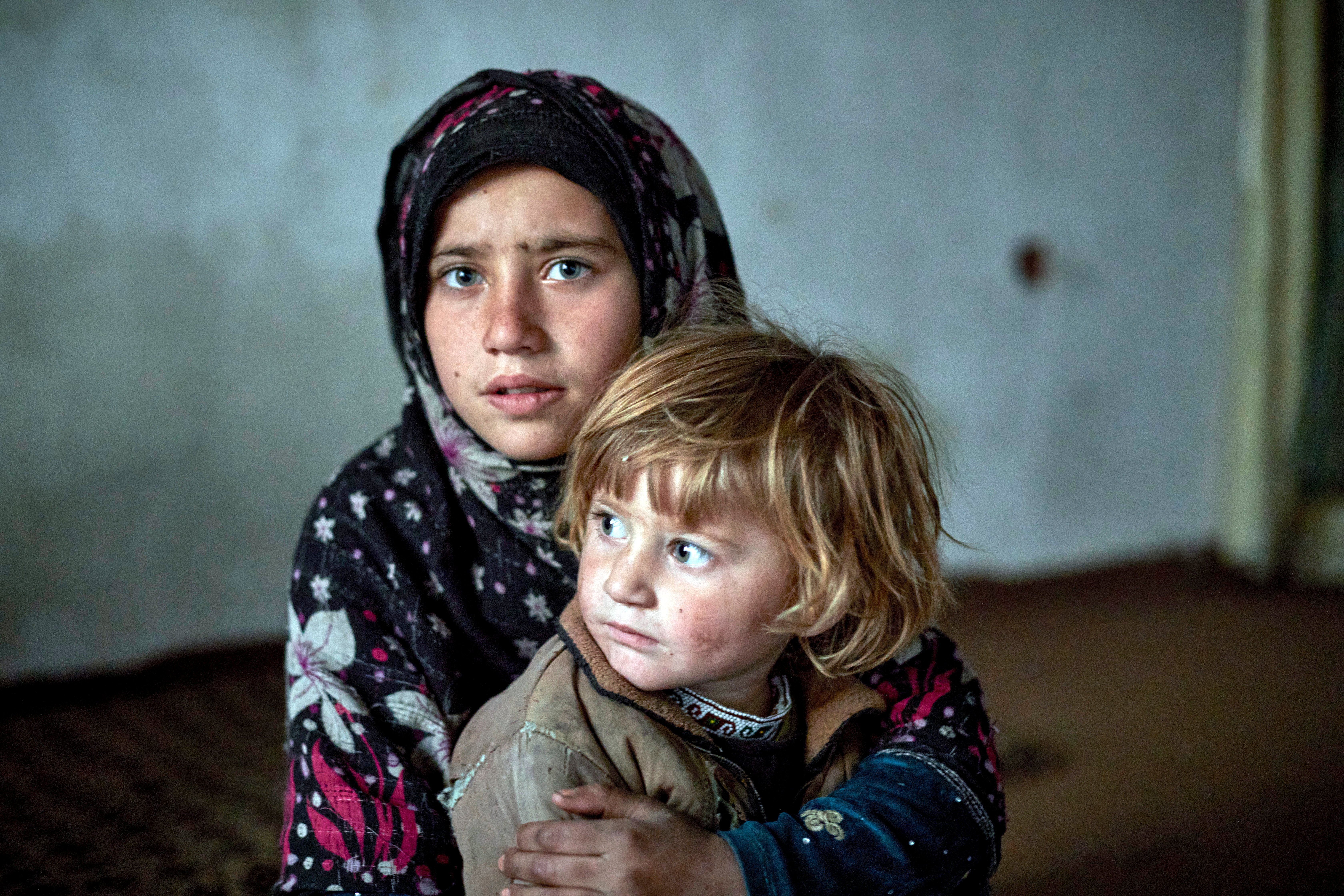Countdown to Rio 2016: Refugee Olympic Team prepares for historic debut

Countdown to Rio 2016: Refugee Olympic Team prepares for historic debut
Ten refugees who made history as members of the first-ever Refugee Olympic Team, have traveled to Brazil to compete at Rio2016. The team includes two Syrian swimmers, two judokas from the Democratic Republic of the Congo, a marathoner from Ethiopia and five middle-distance runners from South Sudan.
You can stay up to date with the latest coverage of TeamRefugees as they compete at the Olympic Games on our Live Blog: Refugee Olympic Team turns dreams into reality in Rio.
Before the Olympic competitions got under way, the athletes trained hard, packed their belongings and traveled to the Olympic Village in Rio. UNHCR followed the different journeys the athletes took, and gathered reaction from some of their biggest fans in this rolling blog.
Friday, August 5
To tumultuous applause and a standing ovation, ten refugee athletes made history on Friday evening marching into the famed Maracanã Stadium during the Opening Ceremony of the Rio2016 Olympics.

Rose Nathike Lokonyen, a 23-year-old South Sudanese runner, led the first-ever Refugee Olympic Team into the stadium behind the banner of the International Olympic Committee (IOC) to cries of support from an ecstatic crowd.

President Obama sent the refugee athletes a message of support shortly before they took to the stadium floor ahead of the host nation Brazil.
“Tonight, the first-ever #TeamRefugees will also stand before the world and prove that you can succeed no matter where you're from,” he declared.
UN High Commissioner for Refugees Filippo Grandi has spoken of his emotion at the reception given by the crowd to the refugee team.
“I was so nervous, waiting for them and I was really, how can I say, full of expectation, how the crowd, the huge crowd of the Maracana stadium would react and I must say I wasn’t disappointed because when the refugee team was announced by the speaker in three languages, everybody stood up and clapped. And it says a lot about the strength of solidarity not just in this country but worldwide," he said.

The Opening Ceremony kicked off with a spectacular celebration of Brazilian art and culture. With an estimated billion people watching worldwide, Brazil showcased its famous music and dance.
It began with a spectacular sound and light show tracing the origins of the life in the Brazilian jungle, with Portuguese explorers arriving on sailing ships among the indigenous tribes, followed by a section that depicted the arrival of millions of African slaves over 400 years.
It went on to show the rise of the cities in the 20th century, featuring a tightly choreographed scene in which athletes performed acrobatics on blocks piled up to resemble skyscrapers. It ended with a warning about the dangers of global warming.

It went on to show the rise of the cities in the 20th century, featuring a tightly choreographed scene in which athletes performed acrobatics on blocks piled up to resemble skyscrapers. It ended with a warning about the dangers of global warming.


Ships arrive bringing Europeans and later African slaves.

The countdown has begun. Only a few more hours to go and the atmosphere in the Maracanã is already electric.
Rose Nathike Lokonyen then led the first-ever team of refugee athletes into the famed Maracanã Stadium.
“I feel very excited. This is the first chance for the refugees to participate in the Olympics and to give us hope, for us to encourage the young generations of fellow refugees who are remaining in the camps maybe to continue their talent," she told UNHCR in a recent interview.
Rose, who from the age of eight, grew up in Kakuma refugee camp in Kenya's inhospitable far north, says life there has been tough. But with the help of others, she has overcome many challenges and become an example to other refugees worldwide of what can be achieved.
"Although we are facing challenges, really we are happy because UNHCR are the ones giving us facilities, basic needs, shelter, food. We are really happy. Same with education, they provide that to refugees," she said.
Meanwhile, the Pope has joined millions of people around the world wishing the Refugee Olympic Team the best of luck.

Thursday, August 4

Rose will carry the Olympic flag and, with her teammates, will march into the Maracanã Stadium before host nation Brazil. The young runner fled war in South Sudan in 2002 and is part of the Tegla Loroupe Peace Foundation. The athletes have been feted since arriving in Rio for the games. On Thursday, they received a visit from UN Secretary-General Ban Ki-moon. He wished them well and said they were making history for refugees all over the world.
They then let their hair down at a welcoming ceremony for the team, and others, at the Olympic Village.

Wednesday, August 3
The Olympic Torch arrived in Rio de Janeiro by boat.
Throughout its long journey to Rio the torch has often been carried by refugees.



Here they are again – the 10 members of the first-ever Refugee Olympic Team.

Tuesday, August 2
Yusra Mardini, 18, and Yiech Pur Biel, 21, thanked both the International Olympic Commission and the UN Refugee Agency, UNHCR, for helping them attend the Rio 2016 Olympic games as members of the first-ever refugee team.
The two spoke movingly of what the occasion meant to them and thanked a full meeting of IOC members for allowing the ground-breaking event to take place.
Yusra, who this time last year swam for her life when the inflatable dinghy she boarded to cross from Turkey to Greece started sinking, said: “Thank you (IOC) for being here today, for the decision you made… (to) allow us to be here in this peace event that is the Olympics. Thank you to everyone who gave us the chance to be here to follow our dreams again.”
IOC President Thomas Bach presented the entire 10-member team one by one to IOC members, and again paid tribute to UNHCR for having stood by the athletes and helped create the teams by a close association with the IOC.

"Many thanks to UNHCR. Without its assistance it would not have been possible to select, train and make them (the refugees) travel to be here today. Their participation in the Olympic Games is a sign of hope to all refugees worldwide. They did not have a country or a flag to compete with. But now they have,” he said to rousing applause.
“We also offered them a home – the Olympic Village. The Refugee Olympic Team will make the world better aware of the refugee cause, showing that anyone can contribute to society,” Bach added.
Pur Biel, a runner from South Sudan who has been a refugee for half of his life, said he considered the IOC and UNHCR to be like the parents he barely knew.
"People think we do nothing in a refugee camp, but we do. We can never forget what IOC and UNHCR made for us, being like a mother and a father. We feel belonging to the community, as human beings. This is the beginning of life and will change our life forever. Thank you all and God bless you."
Monday, August 1
Another action-packed day in Rio.
Today saw the inauguration of the Olympic Truce Mural and the arrival in Rio of the last member of the Refugee Olympic Team. A choir of refugee children living in Brazil, organized by a local partner (the Brazilian NGO IKMR – I Know My Rights) sang peace songs at the event, attended by the IOC president and deputies, the Mayor of Rio de Janeiro, Brazilian Government representatives and athletes.

The Olympic Truce, a tradition originating from ancient Greece, dates back to the eighth century BC. In 778 BC, a truce was announced before and during the Olympic Games to ensure the host city state (Elis) was not attacked and that athletes and spectators could travel safely to the Games and peacefully return to their respective countries. During the truce period, which lasted up to three months, wars were suspended, armies were prohibited from threatening the Games, legal disputes were stopped and death penalties were forbidden.

Said IOC President Thomas Bach: “Athletes set the example of peaceful coexistence in the whole world. They show that it is possible to engage in competition and live in peace together at the same time. This is the true spirit of Olympic unity and diversity.”
“We share the values of peace and solidarity with the United Nations. This is why we announced the creation of the first-ever Refugee Olympic Team in the UN General Assembly, last year,” he added. “The team is signal of hope for all refugees in the world.”
“This choir gives us hope for the future and inspires us to work even more for better understating these kids, so they can live in a peaceful world."

Yonas Kinde, the final member of the 10-member Refugee Olympic Team to arrive in Rio, has now joined the other athletes at the Olympic Village. The full-strength squad will be formally presented to a full session of all members of the International Olympic Commission on Tuesday. Yonas, 36, and originally from Ethiopia, is a marathon runner, now based in Luxembourg.
Later, Yusra and Rami put in a serious training session at the pool.


However, despite all the joy and the smiles here, emotions also run high when members of the Refugee Olympic Team recall their long and often painful journeys to Rio. Popole has not seen his family for 18 years.

Sunday, July 31
At a press conference on Sunday, the five South Sudanese athletes spoke emotionally of the conflict which made them leave their country as children and flee to Kakuma refugee camp, where they grew up with very little, but they all expressed the hope that one day they could compete under their nation's flag.
"We will not be refugees forever, I believe," said Rose Lokonyen, 23.
Taking a break from their training, Yusra, James and Anjelina joined their teammates on a very special sightseeing trip in Rio.

Saturday, July 30
Tears flowed today when members of @teamrefugees met the world press and spoke of what it meant to take part in the first-ever Refugee Olympic Team.
“The Olympic Games are the most important sporting event in the world, and I am very proud," Syrian swimmer Rami Anis told a press conference. "But I am also sad because I´m not representing my country, but the people that lost everything."
Swimmer Syrian Yusra Mardini recalled arriving in Germany with nothing: “I hadn't anything: any caps, any bathing suits, nothing.”
Congolese judoka Yolande Mabika, who lives in Brazil, also expressed sadness: “Everybody says that refugees do not have importance. But we will demonstrate that refugees are capable to do whatever they want.”

Earlier on Saturday, the team set off on their first excursion to one of the world's most iconic sites: Rio's Corcovado (Christ the Redeemer) statue. With only a week now to go before the start of the 2016 Olympics – #refugeeolympics #teamrefugees – excitement is building.
And they like what they see! Who can blame them?
Around the world fellow refugees and other athletes are sending messages of goodwill to the Refugee Olympic Team.

Arrival in Rio
The five South Sudanese members of TeamRefugees have touched down to a huge crowd and warm welcome in Rio! They made friends and were welcomed by well-wishers even before leaving the airport.

UNHCR staff who travelled with them reported that they were excited and elated at the response, but realize there is much hard work ahead. They begin training again almost as soon as their bags are unpacked.
Both of the swimmers on the Refugee Olympic Team are from Syria. Rami and Yusra have already met up in Rio:
It was a great privilege getting to know and travelling with these athletes. They have spent the last few months training together in Kenya and are ready for the run of their lives. They are very aware they are running for refugees worldwide.
The group of five athletes from South Sudan trained together in Kenya. They are clearly all on this incredible journey together:
On the day the five athletes based in Kenya boarded a plane to Brazil, members of the UNHCR team who have been spending time with the athletes spoke about how preparations are going for the historic moments ahead.
At the airport in Berlin, Germany, we caught up with Syrian swimmer Yusra Mardini, who was saying goodbye to friends and family. It was emotional:


















